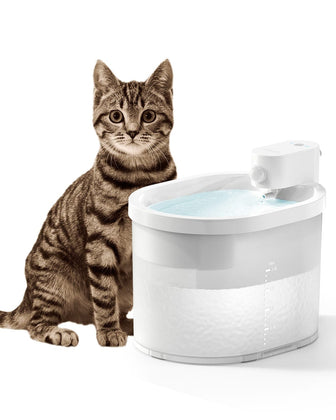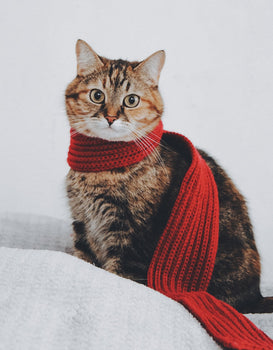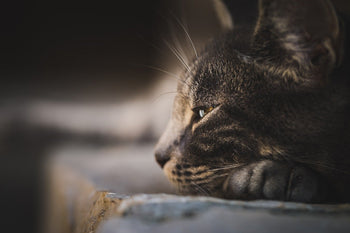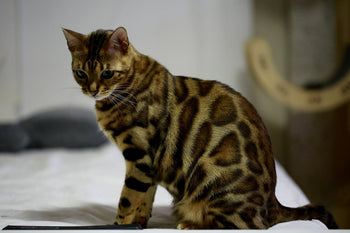Can You Use Tap Water for Your Cat Water Fountain? A Clear Answer
Tap water is a convenient source of drinking water for both humans and pets. However, when it comes to using tap water for a cat water fountain, pet owners may have some concerns. Is tap water safe for cats to drink? Will it cause any health problems? In this article, we will explore the pros and cons of using tap water for a cat water fountain and provide some alternatives for pet owners to consider.
Understanding tap water is the first step in determining whether it is safe to use for a cat water fountain. Tap water goes through a treatment process to remove impurities and make it safe for human consumption. However, the quality of tap water can vary depending on the location and source of the water. Some tap water may contain minerals, chemicals, or contaminants that can affect the taste and safety of the water. Pet owners should research their local water quality and consult with their veterinarian before using tap water for their cat's water fountain.
Key Takeaways
- Tap water can be a convenient source of drinking water for cats, but its safety and quality can vary depending on the location and source of the water.
- Pet owners should research their local water quality and consult with their veterinarian before using tap water for their cat's water fountain.
- Alternatives to tap water, such as filtered or bottled water, may be a better option for pet owners who are concerned about the quality of their tap water.
Related Posts:
Understanding Tap Water
Tap water is a convenient and readily available source of drinking water for both humans and pets. However, it is important to understand the composition of tap water and potential contaminants that may affect its quality.

Tap Water Composition
Tap water is typically treated with chemicals such as chlorine and fluoride to make it safe for consumption. It may also contain minerals such as calcium and magnesium, which can contribute to water hardness.
Potential Contaminants
Tap water may be contaminated with various substances, including bacteria, viruses, and chemicals such as lead and pesticides. These contaminants can affect the taste, odor, and safety of the water.
Quality Considerations
When using tap water for a cat water fountain, it is important to consider the quality of the water. It is recommended to use filtered or purified water to reduce the presence of contaminants and improve the taste and odor of the water.
Related Posts:
Pros and Cons of Using Tap Water
Advantages of Tap Water
One of the main advantages of using tap water is that it is readily available and cost-effective. Unlike bottled water, which can be expensive and may require frequent trips to the store, tap water can be easily obtained from the faucet. Additionally, tap water is often treated with fluoride and other minerals that can be beneficial for your cat's dental health.
Disadvantages of Tap Water
On the other hand, tap water may contain contaminants such as chlorine, lead, and bacteria that can be harmful to your cat's health. While most tap water is safe to drink, it is important to be aware of any potential risks and take steps to minimize them. This may include using a water filtration system or boiling the water before adding it to your cat's fountain.
Maintenance of Cat Water Fountain
Regardless of whether you use tap water or bottled water, it is important to maintain your cat water fountain regularly to ensure that it remains clean and hygienic. This may include cleaning the fountain and replacing the filter as needed. By keeping your cat's water fountain clean and well-maintained, you can help to ensure that your cat stays healthy and hydrated.
Related Posts:
Alternatives to Tap Water
When it comes to providing water for your cat's water fountain, tap water may not always be the best option. Fortunately, there are several alternatives available that can help keep your cat's water clean and healthy.
Filtered Water Benefits
Using filtered water in your cat's water fountain can provide several benefits. First, it can remove impurities and contaminants that may be present in tap water, such as chlorine, fluoride, and heavy metals. This can help improve the taste and odor of the water, making it more appealing to your cat. Additionally, filtered water can help prevent the buildup of mineral deposits in your cat's water fountain, which can lead to clogs and malfunctions.
Types of Water Filters
There are several types of water filters available that can be used in conjunction with your cat's water fountain. Some common types include activated carbon filters, reverse osmosis filters, and ceramic filters. Activated carbon filters are effective at removing chemicals and impurities from water, while reverse osmosis filters use a semipermeable membrane to remove contaminants. Ceramic filters are also effective at removing impurities, and can be cleaned and reused multiple times.
Related Posts:
Conclusion
In conclusion, using tap water for cat water fountains is generally safe, as long as the water is clean and free from contaminants. However, it is important to keep in mind that tap water may contain minerals and chemicals that can build up in the fountain over time, leading to potential health risks for your cat.
One option to consider is the Uahpet cat water fountain, which offers a variety of features to ensure clean and safe drinking water for your feline friend. The fountain has a three-stage filtration system that removes impurities and odor from the water, as well as a silent pump that ensures quiet operation.
Why choose Uahpet cat water fountain?
The Uahpet cat water fountain is a great choice for pet owners who want to ensure their cats have access to clean and safe drinking water. Some of the key benefits of this fountain include:
- Three-stage filtration system: The fountain's filtration system includes a cotton layer, activated carbon layer, and ion exchange resin layer, which work together to remove impurities and odor from the water.
- Silent operation: The fountain's pump is designed to operate quietly, so it won't disturb your cat or disrupt your home.
- Large capacity: The fountain has a 2.5-liter capacity, which means you won't have to refill it as often.
- Easy to clean: The fountain is easy to disassemble and clean, making it simple to maintain and keep in good condition.
Overall, the Uahpet cat water fountain is a reliable and effective option for pet owners who want to ensure their cats have access to clean and safe drinking water.
Related Posts:
Frequently Asked Questions
Is filtered water preferable for a cat's water fountain?
Using filtered water is generally recommended for a cat's water fountain. This is because tap water may contain impurities and chemicals that can affect the taste and quality of the water. Additionally, filtered water can help prevent the buildup of mineral deposits in the fountain, which can clog the filter and affect the fountain's performance.
What are the benefits of using a ceramic water fountain for cats?
Ceramic water fountains are a popular choice among cat owners due to their durability, ease of cleaning, and aesthetic appeal. They are also less likely to harbor bacteria than plastic fountains, which can be a concern for cats with sensitive stomachs or compromised immune systems.
How can I prevent bacteria growth in my cat's water fountain?
Regular cleaning and maintenance are essential for preventing bacteria growth in a cat's water fountain. It is recommended to clean the fountain at least once a week, using a mild soap and warm water. Additionally, using a fountain with a replaceable filter can help remove impurities and bacteria from the water.
What type of water is recommended for cats with urinary health issues?
Cats with urinary health issues may benefit from drinking distilled water, which is free from minerals and other impurities that can irritate the urinary tract. However, it is important to consult with a veterinarian before making any changes to a cat's diet or hydration routine.
Are there any risks associated with cats drinking from water fountains?
While water fountains are generally safe for cats, there are some risks to be aware of. For example, if the fountain is not cleaned regularly, it can become a breeding ground for bacteria, which can cause health problems for cats. Additionally, some cats may be hesitant to drink from a fountain and may prefer a traditional water bowl.
Is distilled water a safe option for my cat's hydration needs?
Distilled water can be a safe option for cats, particularly those with sensitive stomachs or urinary health issues. However, it is important to ensure that the cat is still getting the necessary minerals and nutrients from their diet, as distilled water does not contain any of these essential elements.
Related Posts:
- Is It Feasible To Add Ice Cubes To A Cat Water Fountain?
- How Does a Wireless Cat Water Fountain Work? A Clear Explanation

















